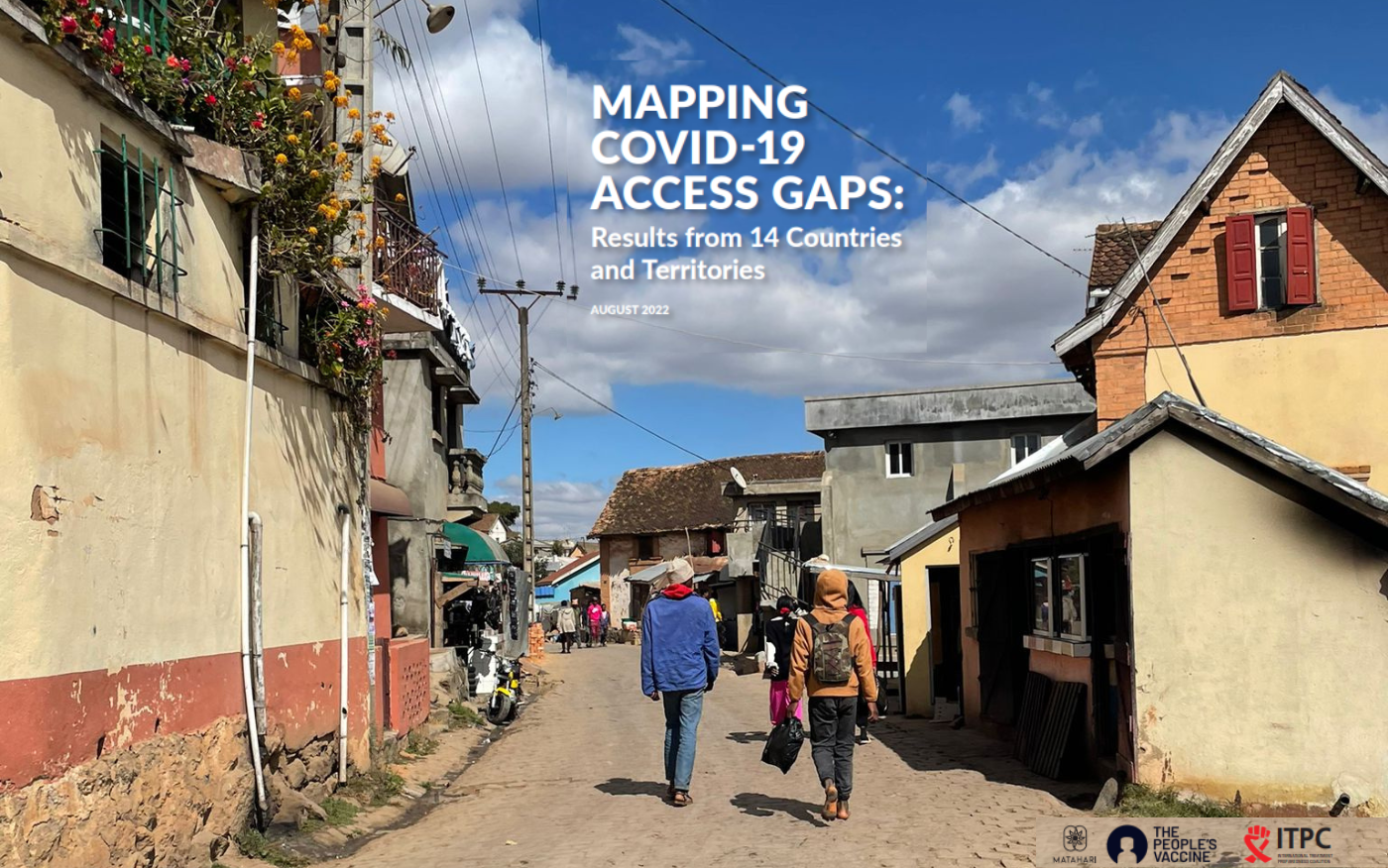As high income countries began transitioning out of the COVID-19 pandemic, lower- to middle-income countries have inequitable access to COVID-19 tools including rapid tests, novel antivirals, vaccines and oxygen.
Matahari Global, with the support of the International Treatment Preparedness Coalition and the People’s Vaccine Alliance, sought to assess progress on access to COVID-19 tools across 14 countries: Bangladesh, Democratic Republic of the Congo, Haiti, Jamaica, Liberia, Madagascar, Nepal, Nigeria, Perú, Senegal, Somalia (and de facto state Somaliland), Uganda and Ukraine.
The August 2022 assessment, titled Mapping COVID-19 Access Gaps: Results from 14 Countries and Territories, builds on the results from the first phase of the project. Matahari collaborated with local consultants and organisations, including Adeyemi Adeitan from Nigeria, Dr Elia Badjo from COSAMED, Democratic Republic of Congo, and Katarzyna Bialous Ankizy Gasy from Madagascar. The report gained valuable insights of what barriers continue to exist within communities, including rural communities in Democratic Republic of Congo and Nigeria.
Overall, the work found that health system failures exacerbate challenges of delivering COVID-19 tools, including the lack of professionalization and remuneration of community health workers, that poor oxygen planning remains, that health workers in multiple countries have never heard of novel antivirals for COVID, that vaccine equity persists, and that urgent planning is needed to ensure direct bank transfers for individuals in the informal economies across all countries during the next pandemic.
